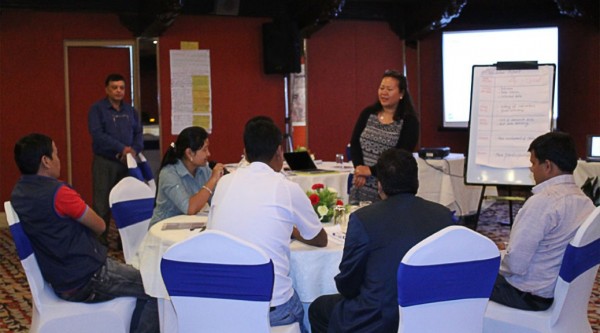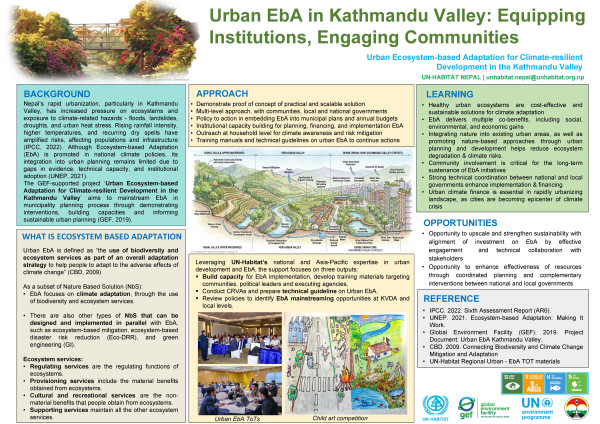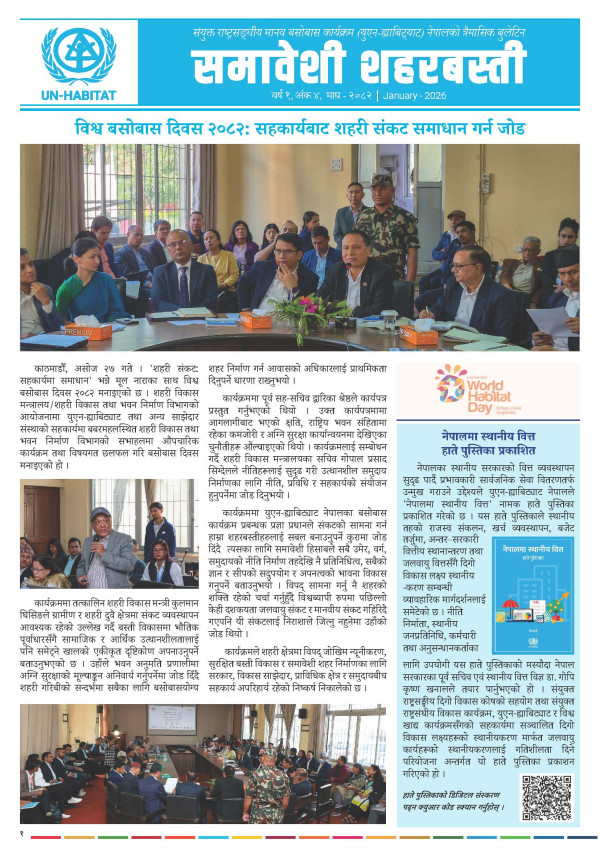UN-Habitat and GLTN organized training workshop on pro-poor gender-responsive land governance

9 October, 2015 Kathmandu, A three-day training workshop on ‘Pro-poor Gender-responsive Land Governance and the Gender Evaluation Criteria’ concluded with a commitment from participants to apply Gender Evaluation Criteria in evaluating and designing land legislation, policies and regulatory framework associated with land governance to address gender concerns.
Theoretical discussions and practical sessions were conducted during the program organized with an objective to enhance capacity of land professionals in evaluating and designing pro-poor gender responsive land governance tools and interventions.
The learning from training will be useful in the changed context after the promulgation of new constitution in Nepal, which has established new land rights and land governance structures are under federal system.
Thirty-six land professionals from five ministries/departments dealing with land and women’s issues, universities and non-governmental organizations participated in the program organized from 6-8 October, 2015 in Kathmandu. Around 45% of them were women.
During the closing ceremony, Nagendra Jha, Joint Secretary at the Ministry of Land Reform and Management expressed hope that the training has provided an increased understanding of tools and methods to evaluate existing land tools and design new ones with a gender perspective. Habitat Programme Manager Padma Sunder Joshi and GLTN Expert Lowie Rosales expressed that the training will be useful in pro-poor gender responsive land governance in Nepal and offered all future support in the use of gender evaluation tools in Nepal.
The training workshop was organized by UN-Habitat in Nepal and the Global Land Tool Network (GLTN) based in Nairobi and supported by the Ministry of Land Reform and Management of the Government of Nepal.
Few Glimpses of workshop
land rights and land governance structures are under federal system.
Thirty-six land professionals from five ministries/departments dealing with land and women’s issues, universities and non-governmental organizations participated in the program organized from 6-8 October, 2015 in Kathmandu. Around 45% of them were women.
During the closing ceremony, Nagendra Jha, Joint Secretary at the Ministry of Land Reform and Management expressed hope that the training has provided an increased understanding of tools and methods to evaluate existing land tools and design new ones with a gender perspective. Habitat Programme Manager Padma Sunder Joshi and GLTN Expert Lowie Rosales expressed that the training will be useful in pro-poor gender responsive land governance in Nepal and offered all future support in the use of gender evaluation tools in Nepal.
The training workshop was organized by UN-Habitat in Nepal and the Global Land Tool Network (GLTN) based in Nairobi and supported by the Ministry of Land Reform and Management of the Government of Nepal.
Few Glimpses of workshop





